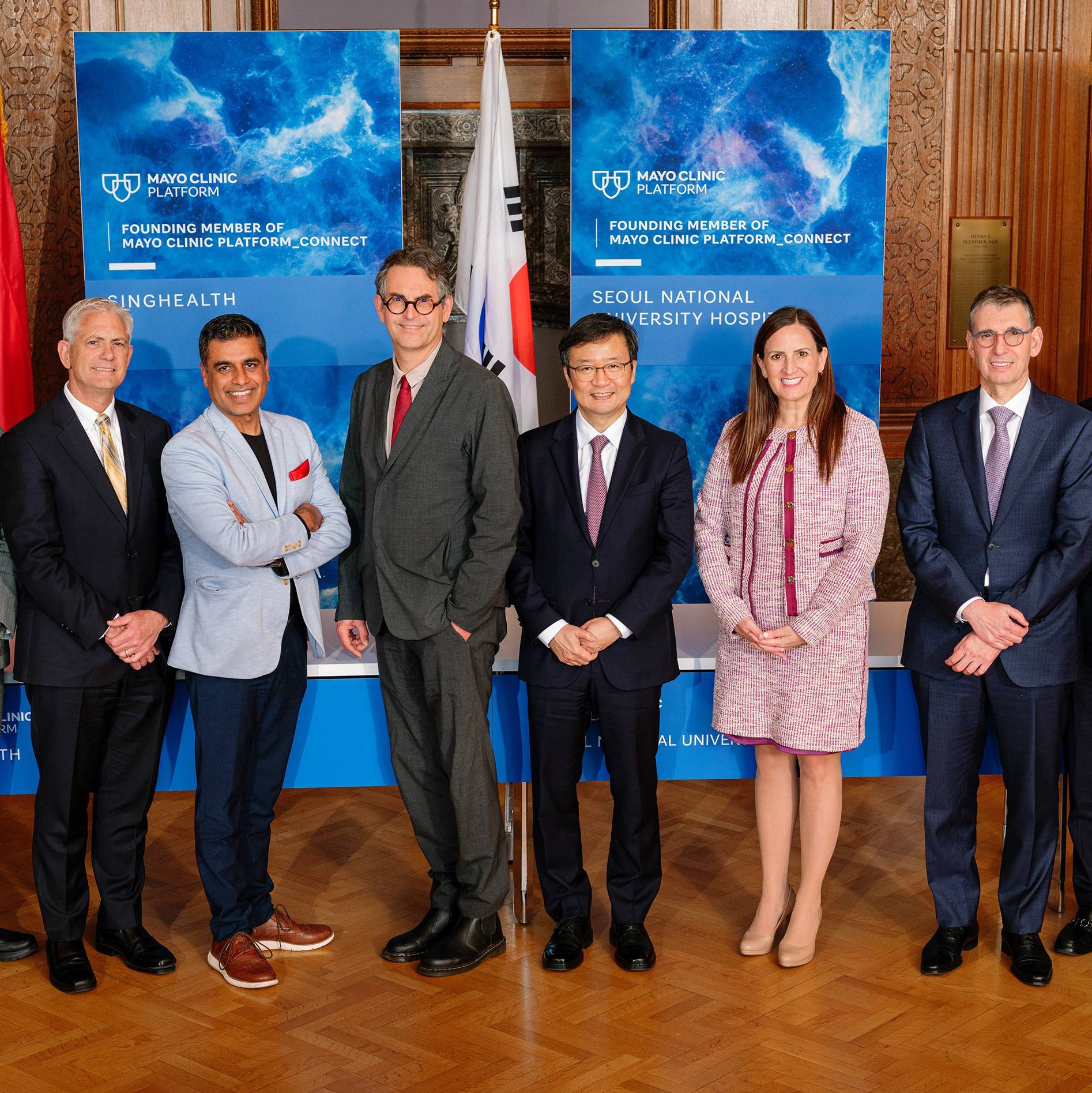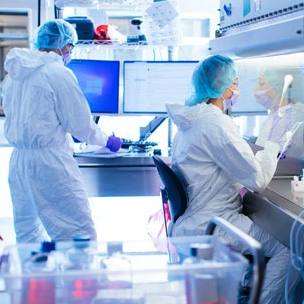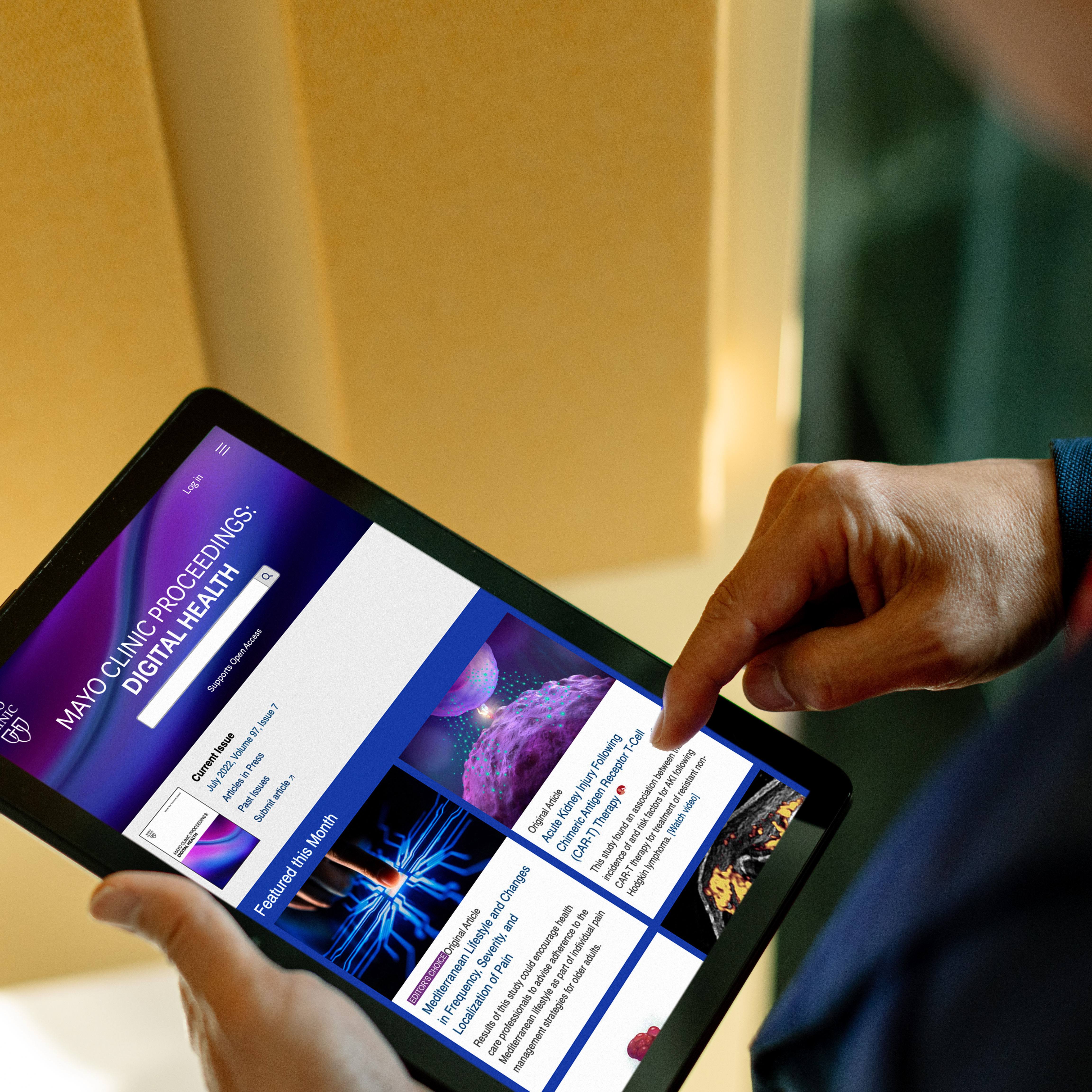-
Research
Four women who ‘make health equity research run’ at Mayo Clinic

March is Women's History Month, a time to honor and recognize women's contributions in medicine and research. This story highlights a team tasked with keeping Mayo's health equity research running full steam.
Monica Albertie leads a small but mighty team of four research operations and program managers at Mayo Clinic, and they have a very important charge: Keep Mayo health equity research running full steam at all times.
The team, part of the Center for Health Equity and Community Engagement Research, supports dozens of research teams across Mayo Clinic. The team helps researchers write protocols and submit IRB applications, works side by side with community partners to coordinate food drives, organizes town halls to debunk vaccination myths, and much more.
Lately this work has intensified due to the disproportionate impact of COVID-19 on people in Black, Indigenous and people of color, often referred to as BIPOC, communities and due to recent social unrest.
We sat down with Albertie and her team — Adeline Abbenyi, Noreen Stephenson and Farhia Omar —to discuss current events pushing health equity into the spotlight, along with their passion for the work and the importance of Black History Month (February).
First, let's meet the team.

Monica Albertie was an administrative fellow at a faith-based health system prior to joining Mayo Clinic. "I enjoyed interacting and learning from patients and residents while surveying their experiences, their needs, and their barriers. It was during this time that I realized I could use my administration background and work directly with communities to improve their health."
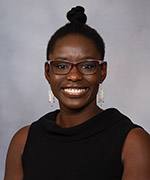
Adeline Abbenyi was first introduced to health disparities research over a decade ago through Irene Sia, M.D., an infectious disease specialist at Mayo Clinic. "Dr. Sia was working in the community to help address an outbreak at a community education center, and she invited me to be part of a health fair to help demystify the treatment and educate the students. It was an incredible collaboration, using ideas from the community that served the needs of the community, and it culminated with the elimination of the outbreak."

Farhia Omar had an interest in public health and health care from a young age. "I pursued a career in public health with an interest in health equity and health disparities. My dream was to work at Mayo Clinic, and I joined the health disparities team one month after graduation. Almost 7 years later, the rest is history."
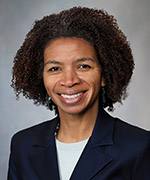
Noreen Stephenson became involved with health disparities while working with residents and fellows to bring diversity to programs at Mayo Clinic. "I have experience with equity outreach and volunteer work in the community, so my position with the Center has been a good fit."
Passion for their work is a resounding theme for the team. They've all had personal experiences that motivate them to achieve accessible health care for all.
Why is this work important to you personally?
Everyone should have the opportunity and freedom to 'be well,' whatever the definition of wellness may mean to them. I've been blessed to have access to resources (education, health care, parks, grocery stores) my entire life; however, I'm only one generation removed from family members that did not have that access. I do this work because I believe that I have an obligation to do as much as I can to meet people where they are and to ensure people in my community have the opportunity, information, and access to get well, be well and live well.:" — Monica Albertie
"In the Healthy Immigrant Families project, a project aimed at improving physical activity and dietary habits among immigrants and refugees to Rochester, I taught group fitness classes with music that appealed to the communities. We incorporated their ideas to formulate a culturally relevant nutrition guide, and we worked with the YMCA to establish women's only classes. To see our communities thrive because they build the process is immensely important and brings me great joy." — Adeline Abbenyi
"As an immigrant of minority background and someone who has seen the effects of health disparities and social determinants of health firsthand, the importance of this work comes naturally to me. Witnessing family members who did not have access to health care succumb to simple preventable health conditions has been the biggest motivation for me. As a result, I'm very passionate about this work." — Farhia Omar
What do you hope to achieve through your work?
"If there is just one thing that I hope to achieve through my work, it is that I've increased the visibility of strong, fearless communities that are often overlooked. I hope that communities will see tangible results of all our efforts to improve wellness and overall quality of life." — Monica Albertie
"I hope that there is more inclusion of diverse populations in research and culturally appropriate solutions to address their needs so that when health recommendations are made and implemented, they are applicable to everyone in our community, not just a few." — Adeline Abbenyi
"I hope to change the perception of Mayo Clinic in minority communities and to break down the mistrust in research and researchers. I want the drugs and treatments we develop to fit everyone, not just a select few. My daughters might be patients one day who will need to benefit from these trials, and I want them to have access to medical care that is proven to work for their population as well as the hegemonic population." — Noreen Stephenson
How has the COVID-19 pandemic impacted your work with communities?
The COVID-19 pandemic has brought the opportunity to engage with underserved populations to address medical and research mistrust and concerns with access to health care. Mayo Clinic has worked within communities to provide COVID testing to those without access, and with the rollout of the COVID-19 vaccine, has organized several town halls focused on answering the questions and concerns of BIPOC communities.
"The pandemic has brought to the forefront the unacceptable inequities in health care and our society at large. It has reaffirmed our commitment to advancing equity and creating an inclusive, positive environment for everyone. Despite the challenges, our researchers, community leaders and collaborators have not wavered and instead came together even stronger in the face of this historic challenge to push boundaries, serve our communities, increase inclusive participation and advance health equity." — Farhia Omar
"It was heartbreaking to go into the communities to do testing and hear the mistrust of medicine and research that still exist, especially when it comes to the COVID-19 vaccination. Many in the Black community, specifically, and BIPOC communities, in general, are likely to be skeptical of the new vaccines, and it was distressing to watch events unfold at national and local levels that reinforce and perpetuate that mistrust." — Noreen Stephenson
February was Black History Month, a time for reflection and a time to look forward. What are you reflecting on when it comes to medicine and research?
"I think about the power of 'stillness.' When we were forced to sit still (due to the pandemic), it opened the eyes of society to the plight and struggle that BIPOC communities have endured throughout history. Those opened eyes have led to individuals with varied differences marching together to fight injustice, companies large and small reflecting upon their own policies and publicly vowing to take action, and increasing the number of conversations about race and racism around dinner tables and in boardrooms. I'm hopeful that the 'stillness' of 2020 will lead us to 'action' in 2021 and beyond. — Monica Albertie
"The past year has been a turbulent and unsettling year due to the pandemic and social unrest. Like so many others, my resilience was put to the test. I spent a lot of time reflecting deeply on the reality that systemic racism continues to exist in our nation. As a mother of two young boys, I had to answer some tough questions that I was not preparing to do until they were much older." — Farhia Omar
"While recently participating in the Mayo Clinic School of Graduate Medical Education's 'Second Look Event,' I caught a glimmer of hope. I was hopeful that these students, who represented great ethnic, gender and race diversity, would choose Mayo Clinic for their training. I hope they saw Mayo Clinic's commitment to end racism and engender inclusion in our institution and our communities. I am hopeful that these students will finish their training and remain on staff. I am hopeful that they will make Mayo Clinic a more colorful place and have a seat at the table where decisions are made." — Noreen Stephenson
While the level of need is tremendous, and the pace of the work is at times frenetic, there is much work to be done, and this team charges ahead.
"Teamwork is our cultural DNA at Mayo Clinic," says Farhia Omar. "Through value and collaboration, we come out stronger together regardless of the challenges that lie ahead."





